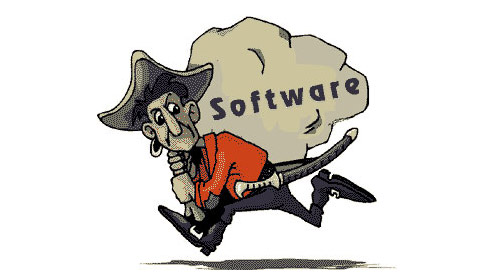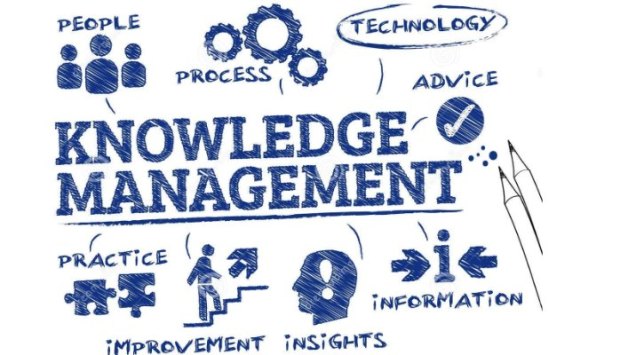Before this semester started, the use of technology has already been highly accustomed by many of us without even realizing its impact not only in personal scale, but also in a bigger scale. Sure, it has made our lives easier, having access to almost all the information we need, making the world a smaller place because of the wide-range reach to anyone across the globe.
These are just some of my thoughts on IT before enrolling for this semester. In our work, it doesn’t really matter much to me before as what we do is routinely and whatever is handed, we do the same daily. Just as long as my system is there, there is an internet, voila! I’m contented, but never did I really put much thought into it.
Throughout the whole trimester, the class has opened my eyes to more that IT has to offer. Years past, people would never have the idea that we will be able to experience this kind of convenience that we are enjoying. The idea of something handheld like our phones could become a means to talk to other people and for them to receive the message in a snap of a finger; someone would have shouted “Rubbish!” at you by the idea before. But at this era, it all makes sense and that is because of IT.

Due to the presence of Information Technology the course itself, it opened my eyes how we usually take for granted its existence and fail to see the importance of it in our organization to say the least. Without it, all tasks will have to be done manually and I could not imagine myself going back to the time when I have to type using a typewriter and send every document through a courier.

Here are some ways IT has made an impact on me and also what I learned and realized throughout the class.
- Increased efficiency in doing tasks
As I usually repeat in the earlier paragraphs, the advent of Information Technology has made the lives of people easier. It is profound in our daily tasks, may it be personal or in our work. At home, we typically use the internet to stay up to date with news, use it for study purposes or just for leisure.
At work, without Information Technology, everything will have to be done manually and it affects the speed of the tasks at hand and how we provide assistance to our clients. With the online system that we use, things are done at a much faster pace, all information are available with a click of a hand, the service expected of us is readily provided.
- The upped use of collaboration tools
Collaboration tools helps ease the flow of information in our daily lives, more so in the organization. With Information Technology the flow of external, objective and subjective information is made simple with the use of different system applications or a centralized data center in an organization where all these data can be retrieved.
Communication and sharing are also made easier because it is readily available and can be shared to a chosen set of receivers.

- Being on guard and practicing security measures.
IT may be advanced in so many ways but it is still prone to threats which can be harmful to any users. Cyber crimes, which are prevalent nowadays, are criminal offenses committed via the Internet or otherwise aided by various forms of computer technology, such as the use of online social networks to bully others or sending sexually explicit digital photos with a smart phone.
Through this class, we were always reminded to practice security of our accounts. Personally, I have never experienced things like hacking, phishing or the likes, but in our office, we are constantly reminded to secure our accounts. Make sure that only we have the access to it. Keep our passwords to ourselves. We also are made to change our passwords every month. Our company is very strict when it comes to security, especially with its banking nature, so we always have to be reminded by it to keep those with malicious intent at bay.

Because of the brilliant minds who worked hard to create such a wonderful and helping product such as IT, we are offered so many opportunities laden in front of us. All we have to do is nurture it, protect it and be responsible users of it. If all things are done right, we can see a bright future ahead of us. It is IT, IT matters, IT’s awesome!

References:
http://www.useoftechnology.com/impact-information-technology-organization/



 Knowledge management also allows faster and better decision making. It is because relevant information is delivered at the time of need that a knowledge management environment can provide basis for making good decisions. Through collaboration, large numbers of ideas, diverse opinions and varied experiences are put on the table and made into use. The reuse of knowledge
Knowledge management also allows faster and better decision making. It is because relevant information is delivered at the time of need that a knowledge management environment can provide basis for making good decisions. Through collaboration, large numbers of ideas, diverse opinions and varied experiences are put on the table and made into use. The reuse of knowledge It also allows easy finding of relevant information and resources when faced with the need to respond to a customer, solve a problem analyze trends, asses markets, benchmarking against peers and other activities made in an organization. With knowledge management, tasks are performed efficiently because information is fast and easy to find when needed.
It also allows easy finding of relevant information and resources when faced with the need to respond to a customer, solve a problem analyze trends, asses markets, benchmarking against peers and other activities made in an organization. With knowledge management, tasks are performed efficiently because information is fast and easy to find when needed. Organizations also are able to avoid doing the same mistakes twice. Knowledge management allows sharing lessons learned, not only about successes. It also allows sharing failures so as to be avoided. To be able to do so, there must be a culture of trust, openness, and reward for willingness to talk about what was done wrong.
Organizations also are able to avoid doing the same mistakes twice. Knowledge management allows sharing lessons learned, not only about successes. It also allows sharing failures so as to be avoided. To be able to do so, there must be a culture of trust, openness, and reward for willingness to talk about what was done wrong.
 With the continuing influx of employees in an industry, the challenge will be how to pass the knowledge from one employee to another. “Knowledge is power but knowledge sharing is empowerment.” Sharing of knowledge to other employees and new entry is very beneficial to an organization. Selfishness can potentially damage the organization. The organization has to find a way to effectively implement Knowledge Management because the transfer of knowledge gives empowerment to the people so as to improve not only their personal standing but also the welfare of the organization.
With the continuing influx of employees in an industry, the challenge will be how to pass the knowledge from one employee to another. “Knowledge is power but knowledge sharing is empowerment.” Sharing of knowledge to other employees and new entry is very beneficial to an organization. Selfishness can potentially damage the organization. The organization has to find a way to effectively implement Knowledge Management because the transfer of knowledge gives empowerment to the people so as to improve not only their personal standing but also the welfare of the organization.